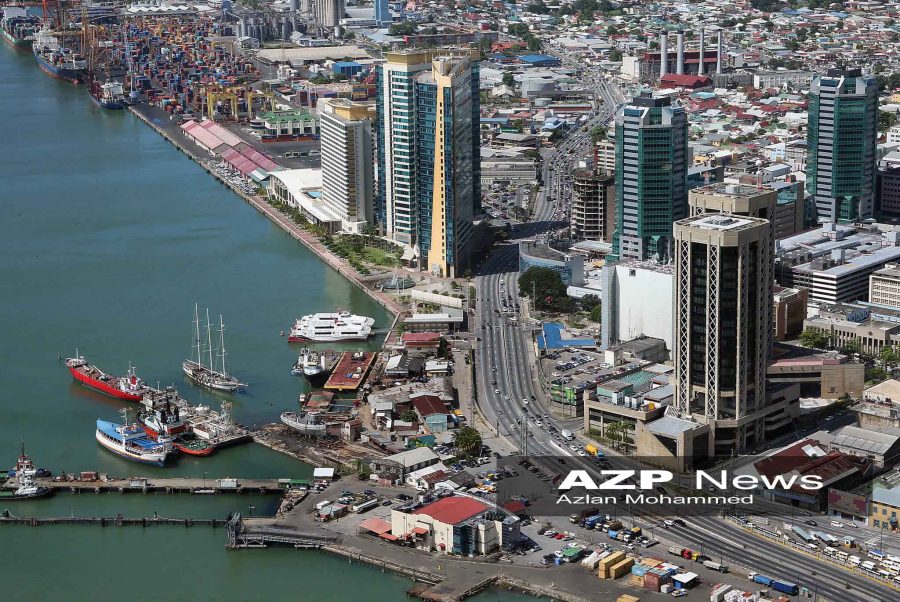
THE recent $US 750 million raised by the Government of Trinidad and Tobago is a debt that will have to be paid to bond holders at 6.4% interest and in US dollars.
The incurrence of this debt was described as a “tremendous success” by the ministry of finance. Ours might be the only country in the world that applauds rising debt. A bond is a loan; only the source of capital is different. Like a loan, it has to be repaid with interest.
In January 2016, the Central Government’s total outstanding debt was $78.2 billion. By the end of April 2024, that figure had risen to TT$106.9 billion. The Central Government’s debt-to-GDP ratio is around 54% (at the end of 2023). While this is within the range the IMF deems acceptable, it will increase as the trend of large deficits, like the one in fiscal 2024, continues going forward. Moreover, this US$750 million debt will take our foreign reserves to around US$6.1 billion, while it will take our external debt to around US$6 billion. Therefore, foreign reserves net of external debt are effectively zero. Thankfully we still have the HSF cushion.
This new foreign debt gives a short-term reprieve to our dwindling foreign reserves but also adds to our foreign debt stock. In addition, it may have gone largely unnoticed, but Moody’s recently changed the outlook for this country’s credit rating from BA2 positive to BA2 stable.
Moody’s noted that their rationale for the change in outlook “is driven by increasing external vulnerability risks, as highlighted by the accelerated pace of liquid foreign exchange reserves drawdown observed over the first four months of 2024.” Borrowing US$750 million is the government’s response to this problem of our rapidly declining foreign reserves. It is a short-term fix with 14 months until a general election.
This move to borrow via a foreign bond issue comes as no surprise, as the minister of finance made his intention clear to Parliament (Hansard, June 7, 2024). In the same debate, he noted that “we have other ways of raising revenue.” Just a few days before that debate, in an affidavit, the same Minister of Finance (under oath) lamented the “negative impact” of foreign borrowings on foreign exchange reserve balances and import cover. These two positions, made over the course of a four-day period, would appear to a reasonable person to be diametrically opposed to one another.
This US$750 million is being borrowed for budgetary support. In the recently concluded mid-year review, we learned that the deficit for fiscal 2024 was projected to be TT$9 billion, which is up from the TT$5billion forecasted when the 2023/2024 budget was presented last October. It could be even more when the dust settles on the current fiscal year. This trend of diminished revenue will continue for at least the period from 2025 to 2027. What is the reason? The minister of finance gave the answer in his affidavit, where he blamed falling oil and gas prices and lower than expected oil and gas production, which he contended had a “profound impact” on energy revenues. Our production problems are largely man-made creatures of policies that disincentivised exploration and developmental drilling and an eight-year hiatus in the award of acreage by the Ministry of Energy.
The country will have to run on borrowings (local and foreign) for the foreseeable future. There is no boom coming on the back of the Manatee project, despite political optimism and “talk around town”. I expect the Shell Manatee, Shell/NGC Dragon, BP Coucina-Manakin, and Woodside Calypso developments to feature prominently in the PNM’s political messaging in 2025.
In fact, I expect the energy sector to be a major platform item in 2025. Of these four projects, only Manatee is certain, and will be approved by Shell very soon. The fact is that the others are subject to political, legal, commercial, and technical risks. Manatee’s production is important but, Manatee by itself won’t save the day for T&T.
While we wait for a recovery of natural gas production, the country will have to increasingly lean on debt to sustain expenditure levels. That is not sustainable. More debt means more financial resources are diverted away from infrastructure, education, and diversification. This rising debt will be a burden for the citizens of Trinidad and Tobago long after those who put the country in this position have exited the political stage. It will also stunt growth. Post-2015 policy actions were taken that were inimical to the interests of the energy sector and caused a significant decline in drilling, which contributed hugely to the much lower production of oil and natural gas we are living with today. In addition, there has been little progress to diversify the economy to create new centers of foreign exchange earnings. A learned friend of mine recently pointed out to me that the road to the IMF is paved with debt which banks to our north are always eager to lend.
Into the Valley of Death was a book published by Dennis Pantin 1989.
Kevin Ramnarine is a former Minister of Energy of Trinidad and Tobago
![]()














